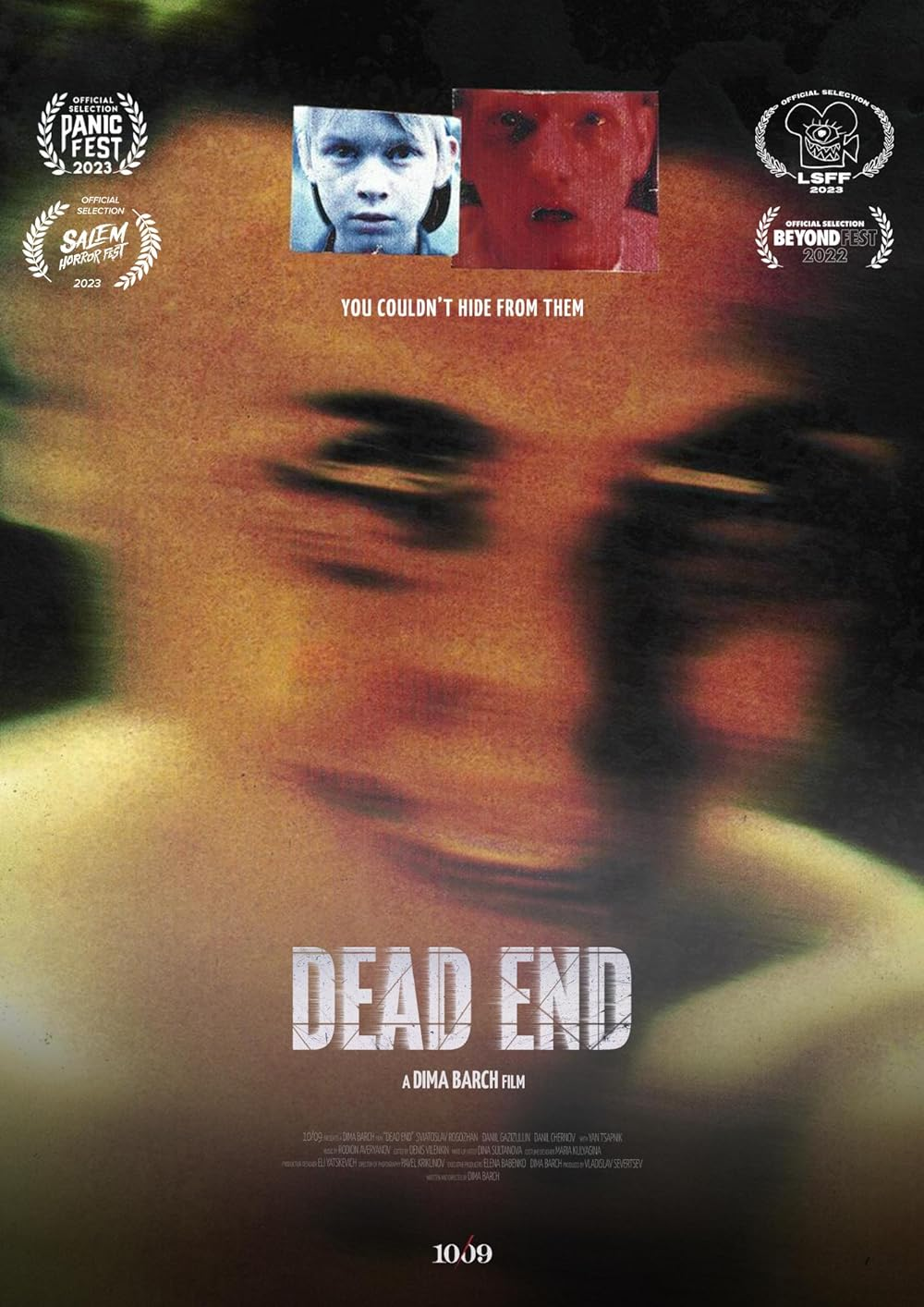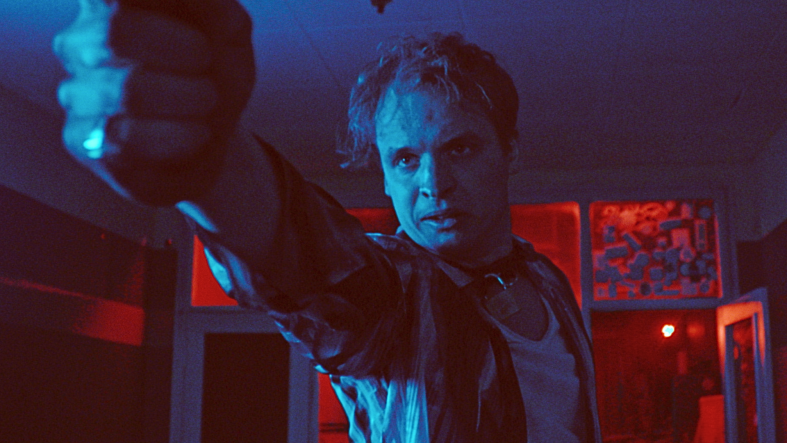Filmmaker Dima Barch On Escaping Russia And The Power Of Queer Horror

For Dima Barch, horror filmmaking is his everything, especially after fleeing his home country of Russia two years ago. An outspoken journalist, activist, and openly queer filmmaker, Barch faced persecution and extreme censorship from the Russian government. But that never stopped Barch from speaking out against anti-gay legislation and creating openly queer work that directly addressed Russia’s rampant socio-political issues.
As a filmmaker, Barch always wants “to stick to [his] gut” when it comes to the types of stories he wants to tell. “I’m so inspired by artists like Jordan Peele who is speaking for his community and I’d like to speak from my community for sure,” he told Dread Central.
Barch’s Start In Film Journalism
But that didn’t start with his short horror films. Barch spoke for his community starting at the age of 14, when he began working as an entertainment journalist. In 2022, he even published a piece in the Hollywood Reporter denouncing Putin, Russia’s anti-LGBT laws and propaganda, as well as the war on Ukraine. In that piece, Barch wrote, “Culture—cinema to be exact—has become a battlefield.”
Barch told Dread Central, “I was pretty famous in Russia first as a journalist. I’ve been published by Forbes, GQ, the Hollywood Reporter in Russia, a lot of different established media outlets.”
He also visited Marvel film sets and interviewed countless celebrities. He even recounts that when he interviewed Dwayne “The Rock” Johnson, Johnson called Barch Harry Styles. “But at the end of the day, I burnt out. So I decided to make this transition to filmmaking,” he said.
Religious Trauma In Dead End
Barch’s first short film Dead End was filmed in Russia and was inspired by his own experiences with religious trauma, persecution in Russia, and heartbreak. The short film follows Nick, a young man in an abusive relationship with Godfrey, a religious fanatic battling his own internalized homophobia. In an attempt to escape Godfrey, Nick kills him. But unfortunately, Godfrey just won’t stay dead.
And thanks to Barch’s artistic vision and desire to create unabashedly queer work, the short film was a hit.
“Dead End became probably the most successful Russian horror in terms of the festival [circuit] ever. We got [into] more than 20 film festivals,” he said. “Some programmers were telling me that it’s kind of like this Russian film called Night Watch.”
Russia isn’t necessarily a country that embraces the horror genre. So for Barch, the success of Dead End wasn’t just a win for him, but for the national horror cinema of Russia, as well.
In an interview with Rue Morgue, Barch said about Dead End,
“It’s my statement about living with anxiety in Russia, being haunted by your memories and fear, and a [response] to David Robert Mitchell and his It Follows, [which] I loved. I wrote the story right after I broke up with my ex who scared me, with a lot of additional notes on being educated in that masculine, hyper-strict society.”
Since the release of Dead End, Barch has earned a George A. Romero Film Fellowship and has been mentored by queer horror filmmaker Carter Smith. And even years after its release, Dead End won best short at the 2024 Portland Horror Film Festival. The work Barch is creating is crucial not only in queer representation, but in confronting systems of power that work to keep queer artists from speaking their truth.

The Power Of The Strike And Going Bolder
After fleeing Russia due to his political activism, Barch came to Los Angeles in search of a new place and community to create shocking, yet thoughtful, queer horror. Thus, The Power Of The Strike was born. Barch’s hyper-violent bowling horror short is currently making the rounds on the festival circuit. This also marks Barch’s English language debut. The film is simply described as “One totally f***ed up night in a bowling alley.” It follows Alex, a gay man who wakes up in a bowling alley and must fight for his life against his captors. It’s been compared to the works of Brian De Palma, George A. Romero, Gregg Araki, and Joe Begos as Barch crafts a neon-soaked hyper-violent world.
Barch had an almost mathematical approach to filming The Power Of The Strike. He drew a lot of inspiration from anime series like Chainsaw Man and Death Note. Often, he wants to try to make his films feel like live-action animation.
“For me, it’s [an] essential part [of filmmaking] to be calculative and to be exceptional in terms of each and every frame. Each and every frame should speak to the audience,” said Barch. “I am watching anime a lot trying to be [inspired] by these things.”

Filmed in Berlin, The Power Of The Strike, as described by Barch, was “more risky” than Dead End in terms of its topics, violence, and aesthetics.
“A lot of people love The Power Of The Strike. But at the end of the day, it’s hard to program,” he said. “It’s kind of in between this queer territory and super bold, cruel violence.”
While Dead End was Barch trying to process emotional trauma with an ex-partner while coming to terms with Russia’s own political violence, The Power Of The Strike is Barch now processing his own isolation and resilience.
“I’m going through my dark times for sure right now. I fled the country, my homeland with nothing, just 200 bucks and a small duffle bag,” he said. “It’s been more than two years. I just wanted to process to make some sort of reflection of these days.”
With this film, Barch even spits in the face of the Russian government with the film’s final line, a line that he says could put him in jail if this was made in his home country.
What’s Next For Dima Barch
With two successful short films under his belt, Barch is looking towards feature filmmaking. He especially wants to create films that speak to queer audiences and their own resilience to exist in a world that seems to hate us. He wants to continue to push the envelope with his work and push against the need for sanitized queer narratives.
“There is no room for such an artist right now like Greg Araki or something like that. Right now we are talking about being diverse, but it’s all about being sweet or sad,” said Barch. “I appreciate these shows…for sure. But on the other hand, I’d love to be punk. I’d love to be like the Monster Makeup guys [who made] Death Drop Gorgeous and Saint Drogo. They’re bold guys. They’re just a huge inspiration for me for sure.”
Despite the prospect of never being able to return home and facing the isolation of having to build his community from the ground up, Barch has never given up his love of filmmaking and his desire to create transgressive works that speak to horror lovers everywhere.
“I was pretty famous in Russia, but I was nobody to the world. So I need to rebuild my life and build my public image from scratch,” said Barch. “I’d love just to make art, but at the end of the day, you need to sell yourself somehow.”
In the face of it all, the future is still bright for Dima Barch. His short films Dead End and The Power Of The Strike are currently on the festival circuit.
Categorized: Interviews
